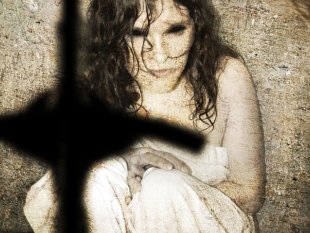Abstract
 OBJECTIVE:
OBJECTIVE:
Belief in demonic influence has repeatedly been described as a delusion in schizophrenic patients. The goal of this explorative study was to examine the frequency, as well as the psychodynamic and social functions of such beliefs in a sample of nondelusional patients.
METHOD:
The sample consisted of 343 psychiatric outpatients who described themselves as religious. In semistructured interviews they were asked to give their view of demonic causality of their illness.
RESULTS:
A high prevalence of such beliefs was not only found in schizophrenic patients (56%) but also in the following groups of nondelusional patients: affective disorders (29%), anxiety disorders (48%), personality disorders (37%) and adjustment disorders (23%). Belief in demonic oppression tended to be associated with lower educational level and rural origin, and was significantly influenced by church affiliation.
CONCLUSIONS:
Beliefs in possession or demonic influence are not confined to delusional disorders and should not be qualified as a mere delusion. Rather they have to be interpreted against the cultural and religious background which is shaping causal models of mental distress in the individual.
- PMID:
- 10494064
- [PubMed – indexed for MEDLINE]

